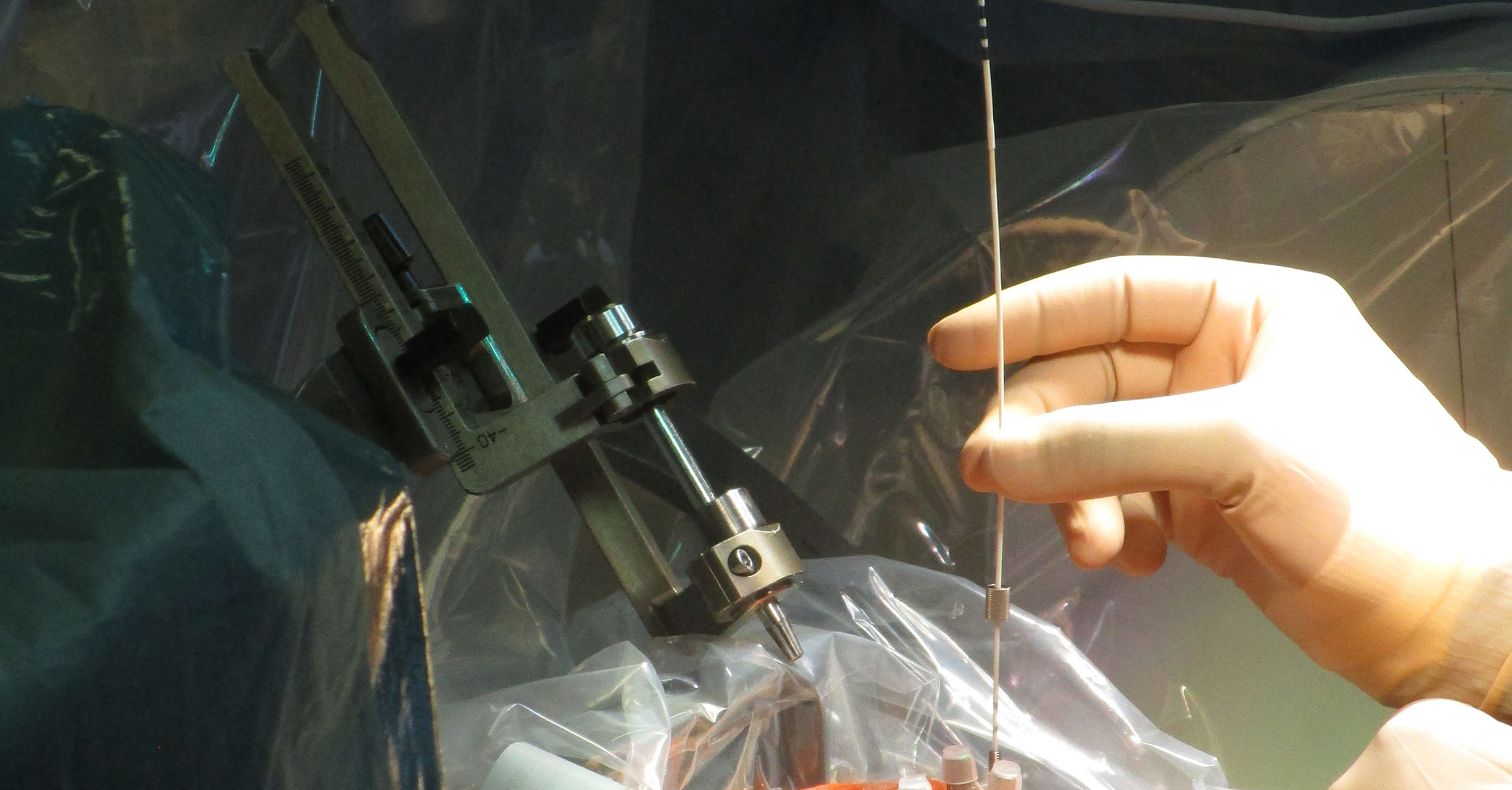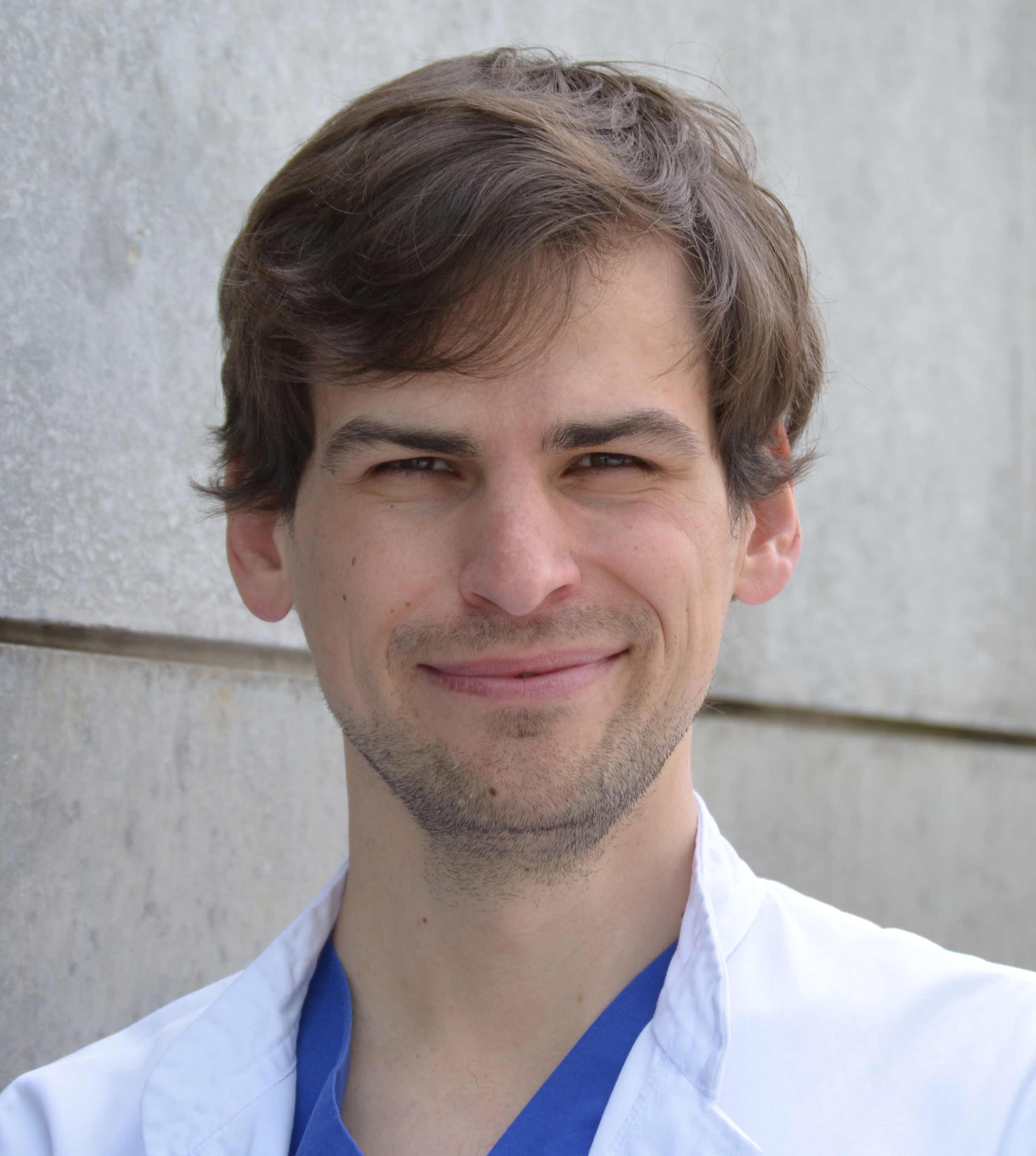

The goal of the Helfrich lab is to unravel the neural network mechanisms supporting higher cognitive functions and their disturbances underlying neuropsychiatric disorders. We study the functional architecture of human cognition with a spatiotemporal resolution spanning single units to large-scale network activity. In particular, we seek to understand context-dependent, goal-directed behavior in humans through the study of neural network dynamics with a particular emphasis on prefrontal cortex (PFC) physiology. The key hypothesis is that context dependent endogenous brain activity shapes cognitive processing in different cortical states, i.e. wakefulness or sleep. A core interest is the systematic investigation of the functional network architecture of cortico-cortical and subcortico-cortical interactions supporting cognitive processes such as attention and memory and their impairment in healthy aging and neurodegenerative diseases.
Currently, much of our understanding of the neural basis of cognition stems from invasive primate recordings or non-invasive recordings in humans. The limited spatiotemporal resolution of non-invasive imaging hampers scientific progress in our understanding of health and disease. Human intracranial electrophysiology has the promise of significant insights into the neural mechanisms that guide behavior. Several clinical procedures provide the unique opportunity to record directly from the human brain at the single neuron or population level. A key goal of our lab is to bridge the gap between different imaging modalities in different species. Translationally, we integrate cognitive and clinical neurophysiology to increase our understanding of cognitive decline and reduced arousal levels such as sleep, anesthesia and coma.
If you are interested in a Bachelor, Master or PhD thesis in the lab, please send an email stating your research interests and your CV to randolph.helfrichmed.uni-tuebingen.de or check the section "Open positions" below.
I. Rhythmic building blocks of human attention: How network oscillations link perception and action.
Attention is a fundamental cognitive function necessary to efficiently translate sensory experiences into goal-directed actions . Traditionally, attention has been conceptualized as a constant spotlight that amplifies behaviorally-relevant information. Recently, several lines of inquiry probing attention on a fine-grained temporal scale revealed frequency-specific behavioral fluctuations that align with ongoing brain oscillations, indicating that attention is a discrete process. Our aim is to understand the structural and functional basis as well as the physiologic purpose of attentional rhythmic fluctuations.
See also Helfrich et al. (2018b) Neuron, Helfrich et al. (2019) Current Opinion in Psychology
II. Context-dependent predictive processing in human prefrontal cortex.
Over the last few decades, several lines of research indicated that the prefrontal cortex (PFC) provides the structural basis for goal-directed behavior based on endogenous predictions, but its functional architecture is not well understood. Our goal is to investigate how predictions are implemented in the human brain to optimize sensory processing and goal-directed behavior.
Background reading Helfrich and Knight (2016) Trends in Cognitive Science; Helfrich et al. (2017) PNAS
III. (Patho-) Physiology of human memory networks during wakefulness and sleep
Hippocampus-Prefrontal interactions are central to memory formation in the human brain. Critically, this network also constitutes a predilection site for various pathological entities that are associated with memory deficits. Our goal is to further dissect and understand the network circuitry underlying memory disorders in various patient populations (epilepsy, stroke and degenerative diseases)
Additional information: Helfrich et al. (2018a) Neuron; Winer, Mander, Helfrich et al. (2019) JNeurosci
IV. Principles of neuronal network organization in the sleeping and the unconscious (anesthesia, coma) brain.
How do different network states impact different behavioral states? Understanding principles of network organization is critical to understand disorders of consciousness. We will work with several patient populations to understand large-scale network mechanisms underlying reduced arousal states.
See also Helfrich et al. (2019) Nature Communications; Lendner, Helfrich et al. (2020) preprinted on the biorxiv
We are inviting applications for fully funded positions for
PhD students and Postdocs
with an interest in the neuronal network dynamics underlying cognitive processing and sleep physiology. The lab is conducting cognitive neuroscience studies in a clinical environment. Our key goal is to understand the network neuroscience underlying higher cognitive functions in the human brain. We are particularly interested in recruiting in the following areas:
I. Rhythmic building blocks of human attention: How network oscillations link perception and action. Attention is a fundamental cognitive function necessary to efficiently translate sensory experiences into goal-directed actions . Traditionally, attention has been conceptualized as a constant spotlight that amplifies behaviorally relevant information. Recently, several lines of inquiry probing attention on a fine-grained temporal scale revealed frequency-specific behavioral fluctuations that align with ongoing brain oscillations, indicating that attention is a discrete process. Our aim is to understand the structural and functional basis as well as the physiologic purpose of attentional rhythmic fluctuations.
See also Helfrich et al. (2018b) Neuron, Helfrich et al. (2019) Current Opinion in Psychology
II. Context-dependent predictive processing in human prefrontal cortex. Over the last few decades, several lines of research indicated that the prefrontal cortex (PFC) provides the structural basis for goal-directed behavior based on endogenous predictions, but its functional architecture is not well understood. Our goal is to investigate how predictions are implemented in the human brain to optimize sensory processing and goal-directed behavior.
Background information Helfrich and Knight (2016) Trends in Cognitive Science; Helfrich et al. (2017) PNAS
III. (Patho-) Physiology of human memory networks during wakefulness and sleep Hippocampus-Prefrontal interactions are central to memory formation in the human brain. Critically, this network also constitutes a predilection site for various pathological entities that are associated with memory deficits. Our goal is to further dissect and understand the network circuitry underlying memory disorders in various patient populations (epilepsy, stroke and degenerative diseases).
Additional information see Helfrich et al. (2018a) Neuron; Helfrich et al. (2019) Nature Commun.; Winer, Mander, Helfrich et al. (2019) JNeurosci
Key Methodology:
We are combining detailed behavioral testing with intracranial EEG recordings in humans (ECoG, sEEG, Single Unit Activity) as well as non-invasive neurophysiology (EEG, MEG) and electrical brain stimulation (direct cortical stimulation, deep brain stimulation, responsive neurostimulation). A methodological focus of the group is a multimodal approach combining invasive and non-invasive approaches (sEEG-MEG). We offer hands-on training on all aspects of study design and data collection as well as state-of-the-art analysis methods of electrophysiological data.
Skills and qualifications:
The positions are well suited for candidates from a wide-range of backgrounds, including biology, computer science, psychology, medicine, cognitive- and neuroscience. We particularly encourage applications from researchers with previous experience in human imaging or primate neurophysiology who are seeking to apply their skills to basic science questions in a clinical context with various opportunities for translational application. Prior coding experience in e.g. MatLab or Python is helpful, but not a pre-requisite. We welcome researchers with an international background. German language skills are not necessary. Tübingen offers a rich and diverse neuroscience campus, where key facilitates (epilepsy monitoring unit and MEG center) are in close proximity. PhD students will be enrolled in Neuroscience Graduate Center Training School in Tübingen (https://www.neuroschool-tuebingen.de/).
We are striving to provide a diverse and family-friendly atmosphere, which fosters international exchange with ample opportunity for collaborations.
If we have sparked your interest, please send your application, including a CV, relevant certificates or diplomas and a cover letter outlining your research interest in English or German to randolph.helfrich@med.uni-tuebingen.de
Key Publications
2019
Helfrich, R.F., Lendner J.D., Mander B.A., Guillen H., Paff M., Mnatsakanyan L., Vadera S., Walker M.P., Lin J.J., Knight R.T. (2019). Bidirectional Prefrontal-Hippocampal Dynamics Organize Information Transfer during Sleep in Humans. Nature Communications
2018
Helfrich, R.F., Fiebelkorn, I.C., Szczepanski, S.M., Lin, J.J., Parvizi, J., Knight, R.T., and Kastner, S. (2018b). Neural Mechanisms of Sustained Attention Are Rhythmic. Neuron
Helfrich, R.F., Mander, B.A., Jagust, W.J., Knight, R.T., and Walker, M.P. (2018a). Old Brains Come Uncoupled in Sleep: Slow Wave-Spindle Synchrony, Brain Atrophy, and Forgetting. Neuron
2017
Helfrich, R.F., Huang, M., Wilson, G., and Knight, R.T. (2017). Prefrontal cortex modulates posterior alpha oscillations during top-down guided visual perception. PNAS
2016
Helfrich, R.F., and Knight, R.T. (2016). Oscillatory Dynamics of Prefrontal Cognitive Control. Trends in Cognitive Sciences

Center of Neurology
Hertie Institute for Clinical Brain Research
Hoppe-Seyler-Str. 3
72076 Tübingen
Phone: +49 (0)7071 29-80442



